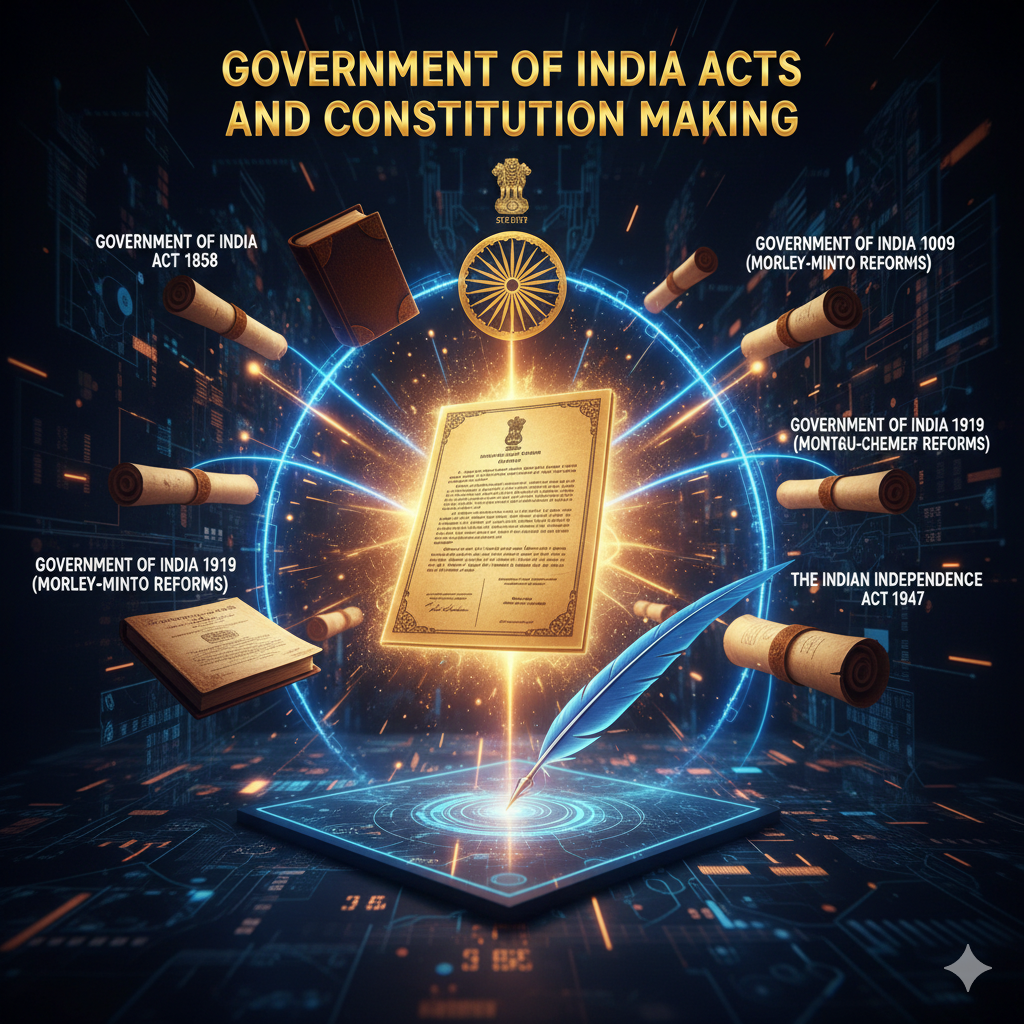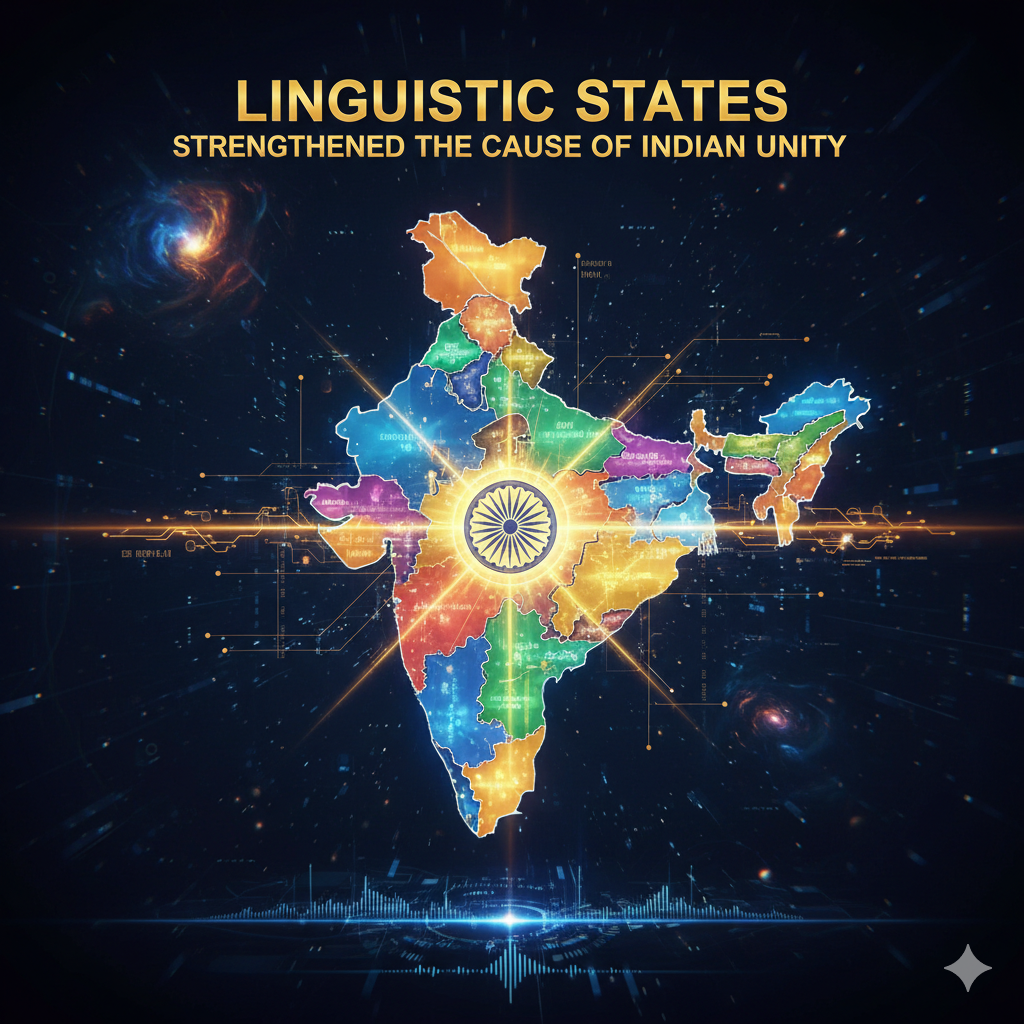1st Amendment Act, 1951
- Added Articles 31A & 31B and the 9th Schedule to protect land reform laws from judicial review.
- Imposed reasonable restrictions on the Right to Freedom of Speech (Article 19).
2nd Amendment Act, 1952
- Changed the representation of states in the Lok Sabha.
3rd Amendment Act, 1954
- Revised the Seventh Schedule by modifying the Union and State List.
4th Amendment Act, 1955
- Strengthened land reform laws and limited compensation for property acquisition.
5th Amendment Act, 1955
- Modified provisions related to the formation of new states.
6th Amendment Act, 1956
- Extended Union Government’s power in taxation and interstate trade.
7th Amendment Act, 1956
- Reorganized states based on language and abolished the classification of states into Part A, B, C, and D.
8th Amendment Act, 1960
- Extended reservation of seats for SCs and STs in Lok Sabha & State Assemblies.
9th Amendment Act, 1960
- Transferred Berubari Union to Bangladesh (East Pakistan at the time).
10th Amendment Act, 1961
- Added Dadra and Nagar Haveli as a Union Territory.
11th Amendment Act, 1961
- Changed the election process of the Vice President of India.
12th Amendment Act, 1962
- Incorporated Goa, Daman, and Diu into the Indian Union.
13th Amendment Act, 1962
- Granted special status to Nagaland under Article 371A.
14th Amendment Act, 1962
- Added Pondicherry as a Union Territory.
15th Amendment Act, 1963
- Increased retirement age of High Court judges from 60 to 62.
16th Amendment Act, 1963
- Amended Article 19 to impose restrictions on fundamental rights for national integrity.
17th Amendment Act, 1964
- Strengthened land acquisition laws and added more laws to the Ninth Schedule.
18th Amendment Act, 1966
- Clarified the definition of Union Territories.
19th Amendment Act, 1966
- Removed Election Tribunals, making High Courts responsible for resolving election disputes.
20th Amendment Act, 1966
- Validated the appointment of district judges.
21st Amendment Act, 1967
- Added Sindhi language to the Eighth Schedule.
24th Amendment Act, 1971
- Empowered Parliament to amend any part of the Constitution, including Fundamental Rights.
25th Amendment Act, 1971
- Curtailed the Right to Property (later removed as a Fundamental Right).
26th Amendment Act, 1971
- Abolished privy purses of former rulers of princely states.
27th Amendment Act, 1971
- Provided special provisions for the administration of Manipur & Tripura.
28th Amendment Act, 1972
- Abolished special privileges for ICS officers.
29th Amendment Act, 1972
- Added more land reform laws to the Ninth Schedule.
31st Amendment Act, 1973
- Increased the Lok Sabha seats from 525 to 545.
36th Amendment Act, 1975
- Made Sikkim a full-fledged state of India.
38th Amendment Act, 1975
- Made the President’s decision on emergencies non-justiciable.
39th Amendment Act, 1975
- Exempted the election of President, PM, and Speaker from judicial scrutiny.
42nd Amendment Act, 1976 (Mini-Constitution)
- Added Socialist, Secular, and Integrity to the Preamble.
- Weakened judicial review and strengthened executive powers.
- Added Fundamental Duties (Article 51A).
44th Amendment Act, 1978
- Restored fundamental rights taken away during Emergency.
52nd Amendment Act, 1985
- Introduced the Anti-Defection Law.
61st Amendment Act, 1988
- Reduced voting age from 21 to 18 years.
69th Amendment Act, 1991
- Gave special status to Delhi, making it National Capital Territory (NCT).
73rd Amendment Act, 1992
- Introduced the Panchayati Raj System.
74th Amendment Act, 1992
- Strengthened Urban Local Bodies (Municipalities).
86th Amendment Act, 2002
- Made Right to Education (RTE) a Fundamental Right under Article 21A.
97th Amendment Act, 2011
- Gave constitutional status to cooperative societies.
99th Amendment Act, 2014
- Proposed the National Judicial Appointments Commission (NJAC) (Later struck down by the Supreme Court).
101st Amendment Act, 2016
- Introduced Goods and Services Tax (GST).
102nd Amendment Act, 2018
- Granted constitutional status to National Commission for Backward Classes (NCBC).
103rd Amendment Act, 2019
- Provided 10% reservation for Economically Weaker Sections (EWS).
104th Amendment Act, 2020
- Extended reservation for SCs & STs in Lok Sabha & State Assemblies for 10 more years.
Conclusion
The amendments in the Indian Constitution reflect its dynamic nature, ensuring adaptability while safeguarding fundamental rights and governance structures. From the 1st Amendment (1951) protecting land reforms to the 104th Amendment (2020) extending SC/ST reservation, each amendment plays a crucial role in shaping modern India.




